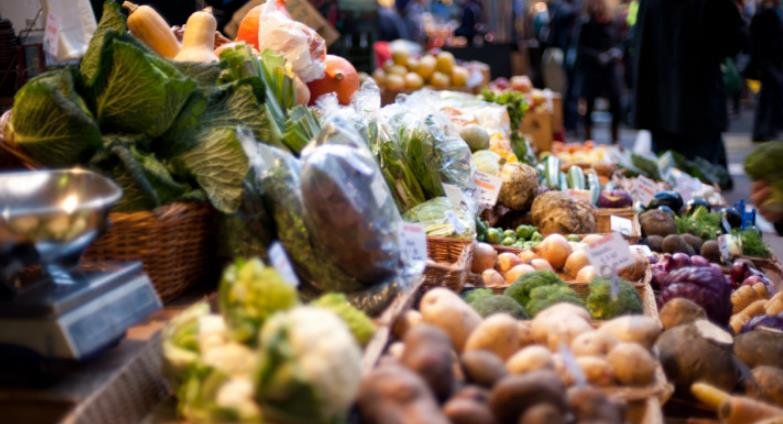The Australian Food Cold Chain Council (AFCCC), a non-profit organization that advocates for cold chain compliance and best practices, has announced its plans to make its website the most comprehensive and coordinated resource centre for the food and beverage industry. The AFCCC, which was established in 2017, has been actively involved in various initiatives and programs to reduce food waste and loss in Australia, which costs the economy $3.8 billion annually at farm gate prices. However, the AFCCC has decided to concentrate more on its core mission of improving cold chain compliance, which it believes is essential for ensuring food quality and safety, as well as reducing food waste and greenhouse emissions.

The Importance of Cold Chain Compliance
The cold chain is the system of transporting and storing perishable food products at controlled low temperatures, from the point of production to the point of consumption. Cold chain compliance means adhering to the standards and regulations that govern the cold chain, such as the Australian Standard for Refrigerated Transport Equipment (AS 4982) and the Australian Standard for Refrigerated Storage Facilities (AS 5144).
Cold chain compliance is vital for the food and beverage industry, as it affects the quality, safety, shelf life, and value of the products. According to the AFCCC, up to 80% of Australia’s food requires refrigeration at some point in the supply chain, and any temperature abuse or deviation can result in spoilage, contamination, or loss of nutritional value. This can lead to food waste, which not only has economic and social impacts, but also environmental impacts, as wasted food contributes to greenhouse gas emissions and water consumption.
The AFCCC estimates that up to 25% of Australia’s food waste is due to poor temperature management in the cold chain, which amounts to nearly $1 billion per year. The AFCCC also claims that improving cold chain compliance can reduce food waste by up to 50%, which can save the industry and consumers up to $500 million per year.
The AFCCC’s Plans and Partnerships
The AFCCC, in its 2023 review of the effectiveness of its operations, decided to focus more on making its website the most comprehensive and coordinated resource centre for the food and beverage industry. The website will provide information, guidance, and tools to help the industry achieve cold chain compliance, such as the new Cold Food Codes, which are voluntary codes of practice that cover the entire cold chain, from farm to fork. The website will also feature case studies, best practices, training and education programs, and links to relevant industry bodies and associations.
The AFCCC will also continue to collaborate and partner with various stakeholders and organizations that share its vision and goals. For example, the AFCCC will work closely with the Department of Agriculture, Water and the Environment (DAWE) to support its nationwide Young Farmers Challenge and Kadiwa Center programs, which aim to empower young farmers and connect them with consumers and markets. The AFCCC will also participate in the media launch of the DAWE’s annual Filipino Food Month, which coincides with the AFCCC’s expo in April 2024.
The AFCCC will also join a Supply Chain Innovation research project initiated by RMIT University, which will focus on interventions and innovations in the supply chain that can reduce food loss and waste, increase industry profitability, and lower greenhouse emissions. The research project will cover various aspects of the supply chain, such as shelf-life extension, packaging, technology diffusion, data systems, and pilot/large scale plants.
The AFCCC will also be involved in the development of interim standards for food loss and waste, commissioned by Standards Australia. The AFCCC’s executive director, Brett Henderson, will take up a seat on the Food Loss and Waste committee responsible for the interim standard, which will provide a common framework and terminology for measuring and reporting food loss and waste.
A Call to Action for the Industry
The AFCCC’s chairman, Mark Mitchell, said that the AFCCC’s plans and partnerships are part of its commitment to help the industry achieve the national target of halving food waste by 2030, as set by the National Food Waste Strategy. He said that the AFCCC’s website will be a valuable resource for the industry, as it will provide access to the latest information, trends, and solutions for cold chain compliance.
However, he also stressed that the industry needs to step up and support the AFCCC’s efforts, as the industry will be the greatest beneficiary from reducing food waste and improving cold chain compliance. He said that the industry will not only save money and resources, but also enhance its reputation and competitiveness in the domestic and global markets.
He urged the industry to visit the AFCCC’s website, sign up for its newsletter, and join its membership program, which will give them access to exclusive benefits and opportunities. He also invited the industry to attend the AFCCC’s expo in April 2024, which will showcase the best of the cold chain industry, as well as feature technical and business sessions, culinary challenges, and cooking demos.
He said that the AFCCC is ready to work with the industry to achieve a more efficient, compliant, and sustainable cold chain, which will benefit the industry, the consumers, and the environment.
















